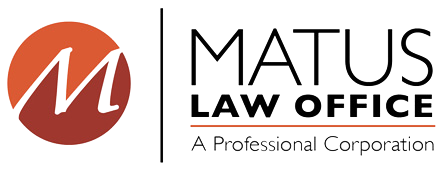Your Employees' Off-duty Smartphone Use May be Making You Liable for Overtime Pay
One of the blessings (and curses) of modern technology is the ability to perform work anywhere, at any time. Like many people, I routinely check work emails on my smartphone while I am outside the office. Since I am exempt from coverage under the federal and state overtime laws, these work habits have no impact on payroll. However, the same is not always true for non-exempt employees. An increasing number of lawsuits have been filed claiming that time spent reviewing and responding to emails and other forms of communications before and after regular work hours needs to be counted in calculating the amount of overtime compensation due non-exempt employees. A recent decision by the federal district court in Chicago illustrates how easy it can be for employers to unknowingly create significant overtime exposure for themselves, as well as some actions employers can take to limit this risk.
In the case of Allen v. City of Chicago, a group of 75 police officers sued Chicago for unpaid overtime compensation allegedly owed for the time spent on the officers’ off-duty responses to work-related emails and telephone calls. While many of the emails and calls did not require immediate response, the officers presented multiple examples of occasions in which they had to contact other officers or perform additional research after normal work hours. Naturally, almost all of this work was performed away from the office, outside the physical presence of the officers’ supervisors and often without the knowledge of the supervisors. Although the number of unpaid work hours varied from officer to officer, several officers claimed to average one unpaid hour per day over a three-year period.
The police officers lost their case for several reasons. Initially, the judge found that while simply monitoring smartphones for incoming messages was not a compensable work activity, employees were required to be paid when an immediate response or other actions was necessary. However, because Chicago had an established policy for employees to report unpaid overtime work, the judge hearing the Allen case concluded that the officers were required to prove that Chicago maintained an unwritten policy to deny unpaid work performed on a smartphone -- a fact that the officers were unable to demonstrate. The court additionally ruled that the officers could not show that supervisors had any specific knowledge that the officers were performing off-duty work on their smartphones without compensation.
There are several lessons that employers should draw from the Allen ruling. If they have not already done so, employers need to enact a written policy regarding off-duty smartphone use by non-exempt employees. In the absence of a policy, employers have no significant control over when or in what circumstances non-exempt employees may respond to after-hours communications, and they could face exposure under overtime laws. On the other hand, by implementing a policy, employers can clearly document their expectations. For example, if an employer wants to bar non-exempt employees from performing any work before or after work hours, this can and should be expressly stated.
A policy for employers who expect non-exempt employees to respond to messages while off-duty will require more detail. Employers should specify what types of communications are important enough to require a response during non-work hours. The policy should further provide that employees should not respond to other communications until they return to the office, and that time merely spent monitoring work emails, voicemails or other communications cannot be counted in determining hours worked. Finally, a policy for employers who allow employees to use smartphones after hours for work purposes should require those employees to keep records of the time spent responding and to require those records to be submitted either on a weekly basis or before the end of each pay period. If the policy contains these types of provisions, an employer will be able to closely observe the amount of off-duty time being spent by various employees, as well as the reasons why the off-duty work was performed. Further, if an overtime lawsuit is subsequently filed, the employer will usually be able to show that any undocumented work was not approved or known, which makes that time non-compensable.
The Allen case touches on another important factor employers need to consider. Even when employers issue a policy regarding after-hours smartphone use, they must ensure that supervisors and other employees act consistent with the policy. It is common for many supervisors to want an employee’s response after hours regardless of what a policy may provide, but employers should train supervisors to minimize this inclination. The more frequently that supervisors or other employees deviate from the policy, the more likely employers will be exposed to the argument that the written policy is a sham, as was claimed by the police officers in Allen. It also goes without saying that even if a written policy bars off-duty work, whenever a supervisor requests a non-exempt employee to immediately respond to a call or email after hours, the employer needs to compensate the employee for the time spent responding.
In the end, an employer has as much authority over an employee’s work-related off-duty smartphone use as it does over any other type of work performed by the employee. The best way for employers to minimize the potentially very costly results of a lawsuit brought under the overtime statutes is to state when such off-duty work is and is not permitted before any claims are asserted.


